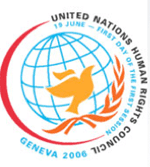 GENEVA (18 June 2018) – UN human rights experts* have made a fresh call to Iran to annul the death sentence imposed on Iranian Kurd Ramin Hossein Panahi, amid reports that he will be executed after the end of the holy month of Ramadan.
GENEVA (18 June 2018) – UN human rights experts* have made a fresh call to Iran to annul the death sentence imposed on Iranian Kurd Ramin Hossein Panahi, amid reports that he will be executed after the end of the holy month of Ramadan.
The execution of Mr. Panahi was previously set for 3 May, but was postponed. It is understood that a request for a judicial review was rejected by the Iranian Supreme Court in late May, and the sentence against him was then referred to the office responsible for carrying it out.
“The Iranian authorities must now halt the execution of Mr. Panahi and annul the death sentence against him,” the experts said.
It follows a similar appeal last month by the Special Rapporteur on extrajudicial, summary or arbitrary executions, Agnes Callamard, who cited concerns that Mr. Panahi had not been given a fair trial, and that he had been mistreated and tortured in detention.
“While acknowledging the postponement of the sentence in May, we regret that Iran seems intent on executing Mr. Panahi, disregarding previous calls to annul the death sentence, and ensure he is given a fair trial,” Ms Callamard said.
The UN experts said there were many legal concerns about the handling of the case, including reports that Mr. Panahi had been tortured, denied access to a lawyer or medical care, and that he had been held incommunicado.
The experts also stressed their concern that the charges against Mr. Panahi did not meet international standards, which specify that the death penalty must be limited to cases of intentional killing.
Mr. Panahi was arrested in June last year for alleged membership of the Kurdish nationalist group Komala. He was convicted of taking up arms against the State, and sentenced to death by a Revolutionary Court in January 2018.
ENDS
*The UN experts: Ms Agnes Callamard, Special Rapporteur on extrajudicial, summary or arbitrary executions; Mr. Dainius Pῡras and Special Rapporteur on the right to health; Mr. Nils Melzer, Special Rapporteur on torture and other cruel, inhuman or degrading treatment or punishment.
The Special Rapporteurs are part of what is known as the Special Procedures of the Human Rights Council. Special Procedures, the largest body of independent experts in the UN Human Rights system, is the general name of the Council’s independent fact-finding and monitoring mechanisms that address either specific country situations or thematic issues in all parts of the world. Special Procedures’ experts work on a voluntary basis; they are not UN staff and do not receive a salary for their work. They are independent from any government or organization and serve in their individual capacity.
UN Human Rights country page – Iran
For more information and media requests, please email eje@ohchr.org
For media inquiries related to other UN independent experts please contact
Jeremy Laurence, UN Human Rights – Media Unit (+41 22 917 9383 / jlaurence@ohchr.org)
This year is the 70th anniversary of the Universal Declaration of Human Rights, adopted by the UN on 10 December 1948. The Universal Declaration – translated into a world record 500 languages – is rooted in the principle that “all human beings are born free and equal in dignity and rights.” It remains relevant to everyone, every day. In honour of the 70th anniversary of this extraordinarily influential document, and to prevent its vital principles from being eroded, we are urging people everywhere to Stand Up for Human Rights: www.standup4humanrights.org.
